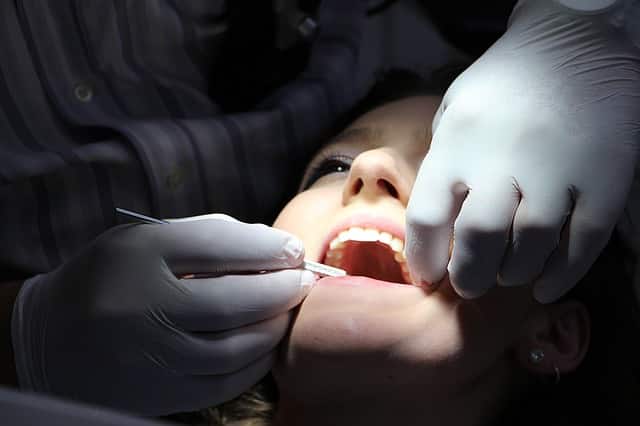Diseases of the oral cavity
There are several diseases and health issues that a dentist can identify just by assessing a patient’s oral health. According to MSN, the conditions include diabetes, heart conditions, eating disorders, anemia and stress and anxiety. The warning signs of heart disease include inflamed gums and missing or loose teeth. This is so because the bacteria’s that accumulate around the mouth area due to periodontitis and other gum diseases may travel to the heart and cause coronary artery disease. Diabetes is a serious health concern around the world. It is estimated that some 100 million people in the US are either suffering from diabetes or have prediabetes. The disease is caused by taking poor diet, rich in sugar and fat along with unhealthy lifestyle choices. Symptoms of diabetes include bleeding gums, severe enamel erosion, and gum disease.
Anemia is a serious health condition that arises when the body is incapable of producing sufficient amounts of Red Blood Cells (RBC). The most notable symptoms of anemia include excessive tiredness, shortness of breath and weakened immune system. The other common symptom is the emergence of pale or light shade pink lining in the mouth. Instead of the usual rugged texture, the tongue may also appear uncharacteristically smooth. Bulimia and other common eating disorders can easily be spotted when the erosion of the inside teeth occurs due to vomiting. When the patient vomits continuously, the acid in the stomach causes the enamel to wear down. In some cases, the teeth may weaken or become sensitive. Lastly, people with stress and anxiety often exhibit various symptoms, including teeth grinding or bruxism and excessive clenching of the jaws.
Health Issues you did not know a dentist could identify
According to Prevention.com, your dentist may point out a few health issues you may be surprised to know, these include; sinus infection, pregnancy, flossing habits, vitamin deficiency and a drinking problem.
Drinking issues: alcoholics often develop chipmunk red cheeks and dry mouth due to the presence of a cavity. The cavity often forms when saliva tries to neutralize the damage caused by the acid found in the mouth area. Alcoholics are also easy to spot due to the smell coming out of their breath.
Bad breath: most doctors categorize bad breath as halitosis. For the dentist, fruity breath and bad smell often mean different things. The fruity smell may be a sign of extreme dietary fasting or out of hand diabetes while a bad breath may point to a serious liver or kidney failure.
Sinus infection: most patients suffering from sinus infection usually request that root canal is performed. The confusion arises because the root atop the teeth is located on the same level as the sinuses. A dentist can pinpoint sinus infection more accurately and separate it from teeth conditions. The dentist may also suggest a simple test by having the patient bend over so they can touch their toes. If the action leads to more pain or downward pressure, the patient may be having a sinus issue and not a problem with the teeth. Under these circumstances, a primary care physician or ENT practitioner is best suited to handle the situation.
Vitamin deficiency: oral conditions like bone infections, painful burning sensations on the tongue and easy to bleed gums often point to vitamin deficiency. A dentist can also point out an individual with iron deficiencies through symptom like sores in the corner of the mouth. Taking sufficient quantities of iron can solve most of these issues associated with lack of vitamins.
Oral cancer: the dentist can spot early signs of oral cancer from the appearance of speckled patches and unexplained bleeding around the mouth area. The other signs of oral cancer include swelling and thickening of the gums and lips. If oral cancer is deemed non-reversible, an oral surgeon may order that a biopsy operation.

